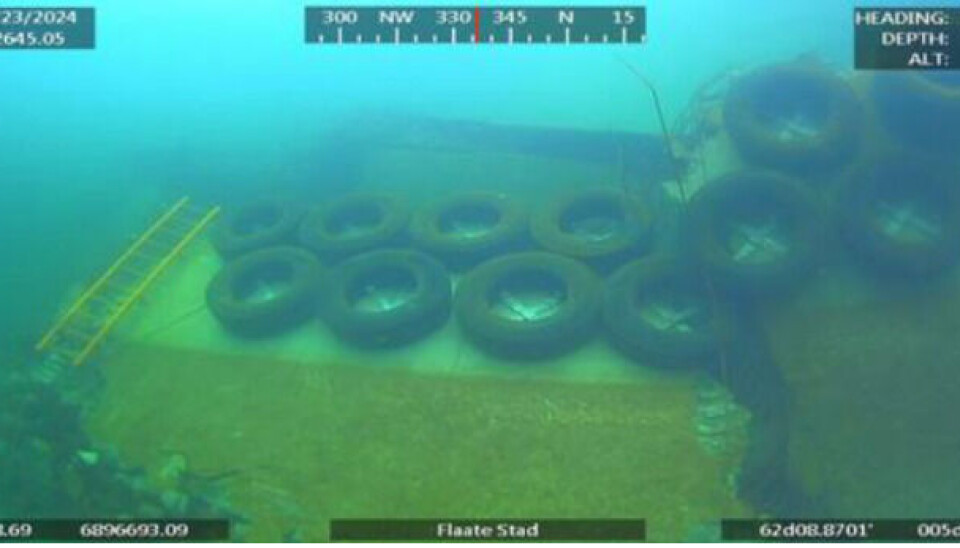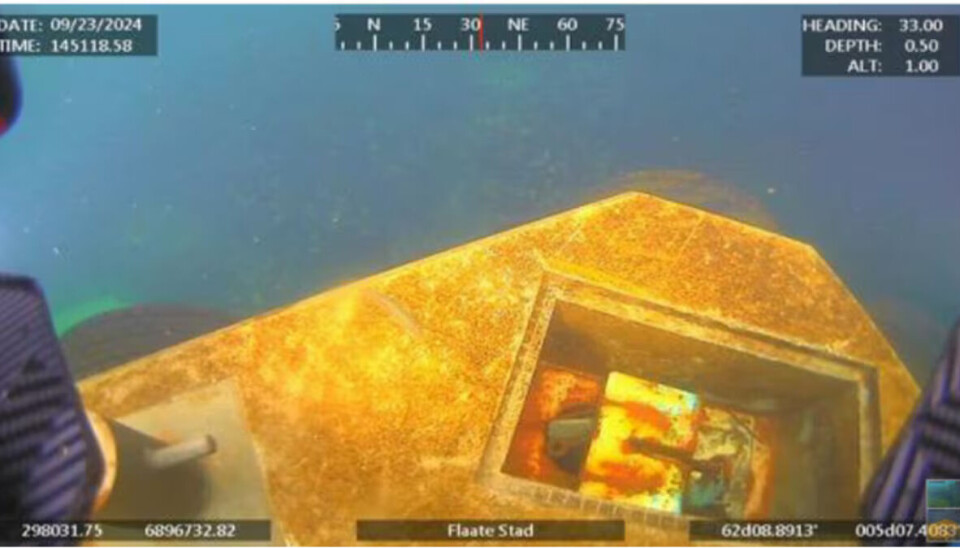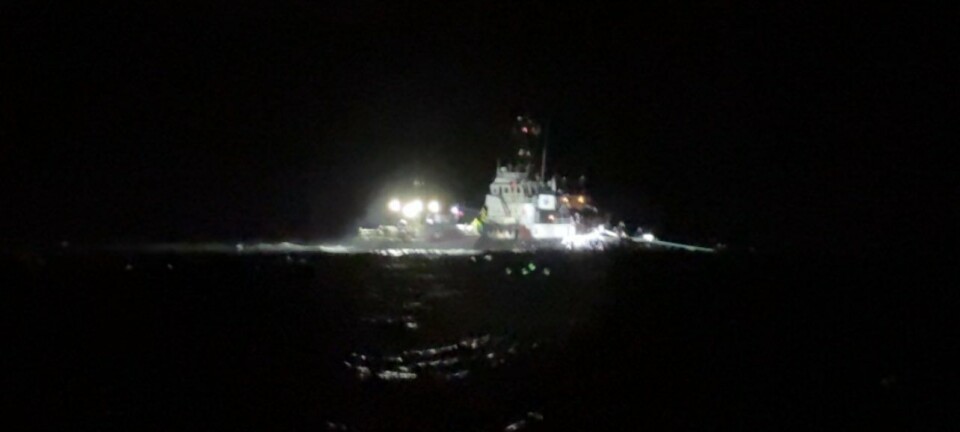
Grounded feed barge has slipped beneath the waves
After arguments between authorities about responsibility, Norwegian salmon farmer Måsøval's barge is now completely submerged and the municipality demands a clean-up.
In August, the tugboat Waterlord, along with salmon farmer Måsøval's brand new feed barge, ran aground off Stad, a peninsula in the northwestern part of the Nordfjord district in Vestland county, Norway.
Ten thousand litres of diesel leaked from the barge into the nature reserve, and the captain of the tugboat has been charged with being under the influence of alcohol.
Måsøval is not a party in this case, but had hired a company to transport the barge to its location. For nearly two months, the barge has been untouched while there has been dispute over who is responsible for raising it.
Last Wednesday, Fjordenes Tidende reported that the barge is no longer visible in the area where it first stranded. Not because it has been raised and moved, but because it has sunk.
The head of planning and management in Stad municipality, Svein Arne Tennebø Fure, told the newspaper that the barge now lies at a depth between two and 11 metres.
Municipal responsibility
The responsibility to ensure that the barge is removed has now fallen on the municipality, which has issued a clean-up order and potential coercive fine to the owner of the barge, Måsøval.
In response to criticism that the process has taken a long time, Tennebø Fure said that it might not have been possible to do it earlier.
"The question is whether it would have been possible to do anything earlier at all. This is such a large operation that one is dependent on good weather over a long period to succeed," he said to Fjordenes Tidende.
On Friday, the communications manager at Måsøval, Berit Flåmo, told state broadcaster NRK that a clean-up will only be possible after the winter.
No immediate danger
Flåmo told Fish Farming Expert's Norwegian sister site, Kyst.no, that the company is having an ongoing and constructive dialogue with the municipality about the situation.
"That parts of the barge have collapsed does not change the timeline for the clean-up. However, it creates additional work and requires a new and extensive investigation with remotely operated vehicles. There is still no immediate risk of pollution."
To assist in mapping, evaluating, and assessing the situation and exploring alternatives for clean-up, Måsøval has brought in what it believes are the leading experts in Norway.
"This includes Norce, Multiconsult, Nordic Subsea, TM, and IMCD. Work is being done on environmental mapping, analysis of 50 years of weather data, and risk identification/early assessment.
"The clear conclusion is still that clean-up can only be carried out after the winter. It will require an extensive operation to clean up, and it will be entirely dependent on a window of suitable weather conditions. The fact that parts of the barge have sunk means further mapping and investigations with ROV will be required after the winter," Flåmo pointed out.
She also emphasised that the process involving the authorities and responses has not affected the work.
"Måsøval Akva has from the start taken responsibility as the owner and worked on how this can be resolved."





































































